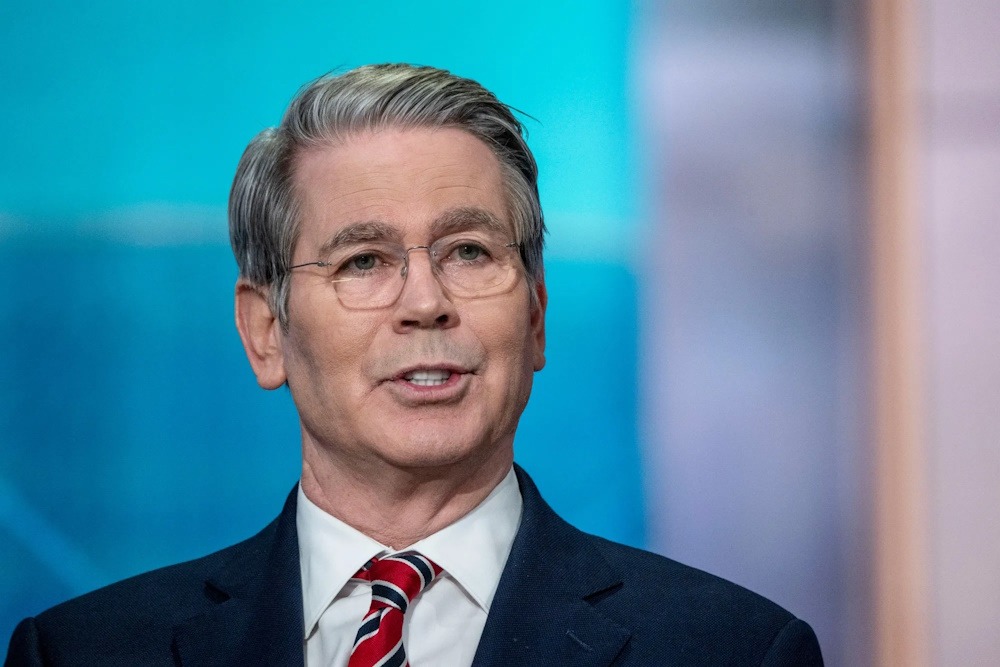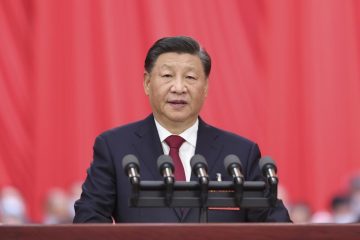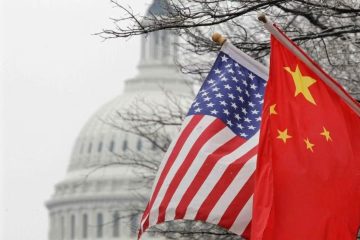US willing to deescalate, Bessent says China tariffs unsustainable

US Treasury Secretary Scott Bessent remarked on Wednesday that the elevated tariffs imposed between the United States and China are not a viable long-term strategy, as President Donald Trump’s administration indicated a willingness to reduce tensions in the trade conflict between the two largest economies, which has heightened concerns regarding a potential recession. Bessent stated that the tariffs—145 percent on Chinese products and 125 percent on US products—must be reduced before trade discussions can advance, but noted that Trump would not take that action unilaterally. “Neither side believes that these are sustainable levels.” “As I said yesterday, this is the equivalent of an embargo and a break between the two countries in trade does not suit anyone’s interest,” Bessent told reporters.
The White House is willing to engage in discussions regarding a substantial reduction in tariffs on Chinese imports to facilitate negotiations with Beijing; however, it will not proceed unilaterally, as stated by an individual acquainted with the discussions. While that individual refrained from disclosing how low the White House might be prepared to go, the Wall Street Journal indicated that the figure could potentially reach as low as 50 per cent.
A spokesperson for the White House characterized the reports as “pure speculation,” asserting that any updates regarding tariffs would be communicated directly by Trump himself. “We are going to have a fair deal with China,” Trump told reporters, yet he refrained from providing any specifics. The tariff levels detailed in the Journal report are expected to remain sufficiently elevated to dissuade a considerable portion of trade between the two largest economies globally. Hapag-Lloyd, the German shipping company, announced on Wednesday that 30 percent of its shipments destined for the US from China have been canceled.
US stocks experienced a rally, fueled by optimism that the two nations could potentially reduce the significant trade barriers established in recent weeks; however, there were no indications that negotiations would commence in the near future.
Discussions held independently between the two nations regarding the fentanyl crisis have yet to produce any tangible outcomes, according to sources. The US’s apparent softening on China tariffs represents a positive development for markets that have been adversely affected by Trump’s unpredictable trade policies. The benchmark S&P 500 concluded the day with a gain of 1.67 per cent, reaching 5,375.86; however, it remains over 12 per cent lower than its record closing value in February. “It’s about all of the political and policy uncertainty and what it could mean for the economy in the near term,” said Jim Baird of Plante Moran Financial Advisors.
Bessent indicated that the third quarter of this year represents a “reasonable estimate” for attaining clarity regarding the final level of Trump’s tariffs. Alongside the significant tariffs on China, Trump has enacted a comprehensive 10 percent tariff on all other US imports, as well as increased duties on steel, aluminum, and automobiles. He has put on hold targeted tariffs on numerous other nations until July 9 and has proposed further industry-specific levies on pharmaceuticals and semiconductors. This development has unsettled financial markets and heightened concerns regarding a potential recession.
On Wednesday, the Trump administration announced in a Federal Register post that it had initiated an investigation into the potential national security risks posed by imports of medium- and heavy-duty trucks and their parts, which could lead to the imposition of tariffs on these goods. Simultaneously, Trump is intending to exempt car manufacturers from certain tariffs, as reported by The Financial Times, referencing two individuals familiar with the situation. The report indicated that the action would relieve car parts from the tariffs that Trump is enforcing on China in relation to fentanyl, as well as from the tariffs imposed on steel and aluminum.
Valdis Dombrovskis, the economy minister, stated on Wednesday that the European Union, facing a potential 20 per cent tariff threat from Trump, would implement countertariffs if an agreement with the United States is not achieved by the July 9 deadline. He stated that the 27-member trade bloc has proposed to increase its purchases of liquefied natural gas from the United States and to lower tariffs on specific goods. Other nations are also seeking to engage in negotiations. On Wednesday, Vietnam’s trade minister engaged in discussions with US Trade Representative Jamieson Greer, according to reports from state media.
Twelve states, among them New York, Arizona, and Illinois, initiated legal action against the Trump administration on Wednesday in the US Court of International Trade, asserting that the tariffs imposed under the International Emergency Economic Powers Act are unlawful. The states aligned with California, which initiated a distinct legal action against the government last week, in contesting the tariffs. The International Monetary Fund stated on Wednesday that the tariffs will impede growth and elevate debt levels worldwide. S&P Global reported that US business activity experienced a decline, reaching a 16-month low in April, while the prices charged for goods and services surged significantly.
The Federal Reserve reported that economic activity in the United States has remained steady over the past month, despite “pervasive” uncertainty surrounding trade. The central bank’s survey indicated a decline in international visitors in certain regions, and the outlook in multiple Fed regional districts “worsened considerably.” A Reuters/Ipsos poll indicated that Americans are becoming increasingly dissatisfied with Trump’s economic performance. Only 37 per cent of respondents express approval of his management of the economy, a decline from 42 per cent at the time he assumed office in January.










